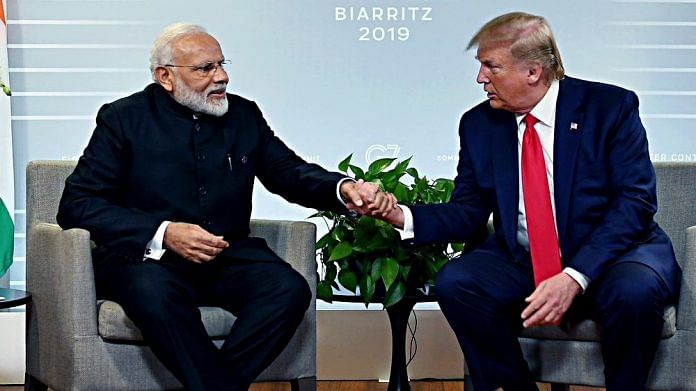Although it only concluded a month ago, US President Donald Trump’s February visit to India seems like a lifetime away. As reflected in the arms sales deals and other announcements, the visit made clear that both the US and Indian governments are moving towards a broad consensus on the issues of regional and global defense and security. However, the failure to reach even a modest trade agreement after months of intensive talks revealed a lack of similar consensus on economic issues.
If there is one bright spot about the coronavirus pandemic, it is that this crisis might make it more obvious to both the United States and India how they can — and should — build on their commercial synergies to tackle the emerging problems that Covid-19 presents.
US-India pharma ties
Our common interests are nowhere clearer than in the pharmaceutical industry, which has been a great success story of US-India trade and investment. It is well known that India provides 40-50 per cent of US generic drugs. But the commercial benefits from the sector are not one-sided. When I visited Dr Reddy’s Labs in Hyderabad, I saw firsthand how the company imports significant amounts of inputs from the United States. Cutting-edge pharma research also benefits from this type of cooperation. Taking advantage of global time differences, Mylan’s labs in West Virginia and Hyderabad operate and cooperate on a virtual 24/7 schedule.
Yet, as the current pandemic has made clear, the pharmaceutical industry in both India and the United States has arguably become too dependent on Chinese inputs. This in turn has created uncertainties in the market just when new research and treatments are most needed. One example of this is India’s decision exports of certain drugs important to the US and other countries.
Now is the time for both the governments and the pharmaceutical manufacturers to come together to build and plan for diverse supply chains. They should work together on protocols, and ensure adequate production and distribution of drugs and medical supplies.
Also Read: Hydroxychloroquine, Trump’s prescription for Covid-19, gets tougher to buy in India
Need for pandemic preparedness
The Covid-19 epidemic has also illuminated the utility of US-India cooperation in other sectors, notably the use of artificial intelligence (AI) and machine learning. The Chinese government has in many ways seized the narrative on how AI and machine learning has helped isolate and control the pandemic. As the world’s largest democracies with strongly interlinked information technology sectors, both the countries’ governments and industries should come together. They must identify potential areas of AI and machine learning research and lay out protocols and ethics on the use of these advanced technologies that will be more in keeping with democratic values and personal freedoms. This dialogue will be no less important when the current coronavirus crisis is over.
Another very valuable topic for future bilateral discussion will be about incorporating economic resilience planning into future pandemic preparedness. The United States and India are obviously quite different in terms of economic development and markets. However, they share a number of similar features — overlapping and at times opaque responsibilities between the centre and state authorities, conflicts between majority and opposition parties, and independent judiciaries. All these benefits of democratic systems create challenges during emergencies, and there will be much to be gained from sharing best practices.
Also Read: UNSC in ‘no hurry’ to discuss China role in Covid-19 pandemic as world locks down
These are just a few potential areas that can be augmented through bilateral economic cooperation. Of course, this bonhomie is not assured. There is a very real risk that both countries, facing political and economic pressures arising out of pandemic-induced recessions, will double down on nativist impulses.
This could mean raising barriers to trade and investment in the guise of promoting domestic manufacturing of essential supplies. That would be regrettable for both the countries because of the opportunity costs of working separately to improve economic, financial, and industrial security. The rapid conclusion of a limited trade deal — and work towards a more ambitious agreement — would be one of the best ways to inject optimism into both countries’ economies just when they need it most.
Katherine B. Hadda is a former senior US diplomat who most recently served as the Consul General in Hyderabad, India. The opinions and characterizations in this piece are those of the author and do not necessarily represent those of the U.S. government.
Views are personal.



